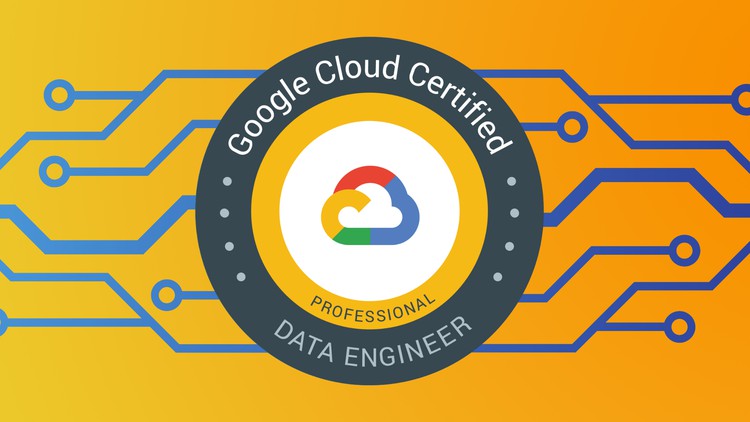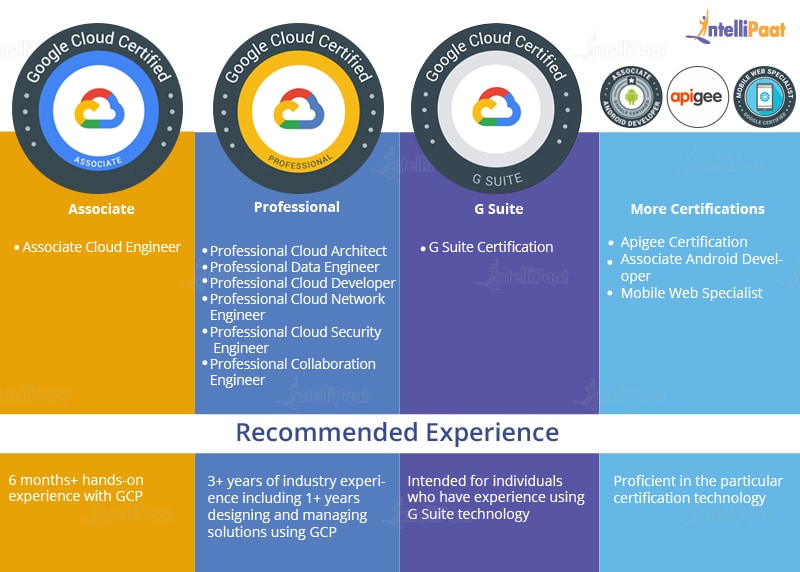Understanding the Role of a Cloud Engineer
Cloud engineering is a rapidly growing field that involves designing, managing, and optimizing cloud computing systems for businesses and organizations. A cloud engineer certification demonstrates proficiency in this area, showcasing a candidate’s expertise in cloud platforms, infrastructure, and services. Obtaining a cloud engineer certification can significantly enhance career growth and credibility in the competitive IT industry.
Popular Cloud Engineer Certifications
Cloud engineer certifications are essential for professionals seeking to validate their skills and knowledge in this dynamic field. Here are some of the most popular cloud engineer certifications:
AWS Certified Solutions Architect
Amazon Web Services (AWS) offers a range of certifications, with the AWS Certified Solutions Architect being one of the most sought-after. This certification focuses on designing and implementing scalable, cost-effective, and secure systems on the AWS platform. It is available at two levels: Associate and Professional.
Google Professional Cloud Engineer
Google’s Professional Cloud Engineer certification demonstrates a candidate’s ability to design, develop, manage, and optimize cloud solutions using Google Cloud Platform (GCP) services. This certification covers topics such as networking, security, compute, storage, and big data services.
Microsoft Certified: Azure Solutions Architect Expert
Microsoft’s Azure Solutions Architect Expert certification is designed for professionals who want to showcase their expertise in designing and implementing solutions on the Microsoft Azure platform. This certification covers topics such as compute, network, storage, security, and application services.
Obtaining these cloud engineer certifications can significantly enhance your career prospects, as they demonstrate your proficiency in cloud computing and your commitment to staying up-to-date with the latest technologies and best practices.
Prerequisites and Eligibility Criteria
Before pursuing a cloud engineer certification, it is essential to understand the prerequisites and eligibility criteria. These requirements vary depending on the certification and the issuing organization. Generally, cloud engineer certifications have the following prerequisites:
- Relevant work experience: Most cloud engineer certifications require candidates to have a certain amount of work experience in cloud computing or a related field. For example, the AWS Certified Solutions Architect – Associate level certification requires at least one year of hands-on experience designing scalable, cost-effective, and secure systems on the AWS platform.
- Skills and knowledge: Candidates should have a strong understanding of cloud computing concepts, such as virtualization, networking, storage, security, and application deployment. They should also be familiar with various tools, platforms, and services used in cloud engineering.
- Educational background: Although not always mandatory, having a bachelor’s or master’s degree in computer science, information technology, or a related field can be beneficial. Some certifications may also accept equivalent experience in lieu of a formal education.
Meeting these prerequisites and eligibility criteria is crucial for ensuring that you have the necessary foundation to succeed in the certification exam. It also demonstrates your commitment to the field and your dedication to continuous learning and improvement.
How to Choose the Right Cloud Engineer Certification
Selecting the right cloud engineer certification can be a challenging task, given the variety of options available. To make an informed decision, consider the following steps:
Step 1: Evaluate your career goals and aspirations
Determine your short-term and long-term career goals. Are you looking to transition into a cloud engineering role, or do you want to advance in your current position? Consider the job opportunities and salary potential associated with each certification.
Step 2: Assess your current skill level
Evaluate your current knowledge and experience in cloud computing. Identify your strengths and weaknesses, and look for certifications that align with your skillset. For example, if you have extensive experience with AWS, consider pursuing an AWS certification.
Step 3: Choose a certification that matches your preferred cloud platform
Select a certification that focuses on your preferred cloud platform. If you are interested in working with multiple cloud platforms, consider obtaining certifications from different providers. This will demonstrate your versatility and expertise in various cloud environments.
Step 4: Research the certification requirements and exam format
Familiarize yourself with the certification requirements, such as prerequisites, eligibility criteria, and exam format. This will help you determine if you are ready to pursue the certification and give you a better understanding of what to expect during the exam.
Step 5: Consider the cost and time commitment
Evaluate the cost and time commitment required to obtain the certification. Consider the exam fee, study materials, and training courses. Make sure you have the necessary resources and time to dedicate to preparing for the exam.
By following these steps, you can choose the right cloud engineer certification that aligns with your career goals, skill level, and preferred cloud platform. Obtaining a cloud engineer certification can significantly enhance your credibility, career growth, and earning potential in the competitive IT industry.
Preparing for Cloud Engineer Certification Exams
Preparing for cloud engineer certification exams requires a strategic approach and a solid understanding of the exam format, content, and requirements. Here are some tips and resources to help you prepare:
1. Understand the exam format and structure
Familiarize yourself with the exam format, structure, and duration. Most cloud engineer certification exams are multiple-choice, scenario-based, or a combination of both. Understanding the exam format will help you develop a study plan and allocate your time effectively.
2. Review the exam blueprint and objectives
Review the exam blueprint and objectives to understand the topics and skills covered in the exam. This will help you identify the areas where you need to focus your study efforts and ensure that you are well-prepared for the exam.
3. Use study materials and resources
Take advantage of the study materials and resources provided by the certification provider. These may include textbooks, online courses, practice exams, and training labs. Make sure you use official study materials, as they are tailored to the exam objectives and provide the most accurate and up-to-date information.
4. Join study groups and forums
Join study groups and forums to connect with other professionals who are preparing for the same certification exam. Sharing knowledge, experiences, and resources can help you stay motivated, focused, and accountable throughout your study journey.
5. Practice, practice, practice
Practice is essential for mastering the skills and knowledge required for cloud engineer certifications. Take advantage of practice exams, training labs, and hands-on exercises to reinforce your learning and build your confidence.
By following these tips and resources, you can effectively prepare for cloud engineer certification exams and increase your chances of success. Remember to allocate enough time, effort, and resources to your study plan, and stay committed to your learning journey.
Maintaining and Updating Your Cloud Engineer Certification
Maintaining and updating your cloud engineer certification is crucial for staying current with new technologies, best practices, and industry trends. Here are some reasons why it’s essential to keep your certification up-to-date and some tips for doing so:
1. Stay relevant and competitive
The cloud computing landscape is constantly evolving, with new technologies, tools, and services emerging regularly. Keeping your certification current demonstrates your commitment to staying relevant and competitive in the job market.
2. Meet recertification requirements
Most cloud engineer certifications have a recertification requirement, typically every two or three years. Meeting these requirements ensures that you maintain your certification status and continue to demonstrate your expertise in cloud engineering.
3. Access new resources and benefits
Certification providers often offer new resources and benefits to certified professionals, such as access to exclusive training courses, webinars, and events. Staying current with your certification can help you take advantage of these opportunities and enhance your skills and knowledge.
4. Tips for maintaining and updating your certification
Here are some tips for maintaining and updating your cloud engineer certification:
- Review the recertification requirements and deadlines regularly.
- Take advantage of training courses, webinars, and other resources offered by the certification provider.
- Participate in online forums, communities, and study groups to stay up-to-date with industry trends and best practices.
- Attend industry events, conferences, and meetups to network with other professionals and learn about new technologies and services.
- Earn additional certifications or specializations to deepen your expertise and demonstrate your versatility in cloud engineering.
By maintaining and updating your cloud engineer certification, you can demonstrate your commitment to excellence, stay current with new technologies and best practices, and enhance your career prospects in the competitive IT industry.
Comparing Cloud Engineer Certifications
Choosing the right cloud engineer certification can be a daunting task, given the variety of options available. To help you make an informed decision, here’s a comparison of some popular cloud engineer certifications in terms of cost, difficulty, recognition, and job opportunities:
1. AWS Certified Solutions Architect
Cost: $150 for the associate level and $300 for the professional level
Difficulty: Intermediate to advanced
Recognition: Widely recognized and in-demand in the industry
Job Opportunities: High demand for certified professionals in various industries
2. Google Professional Cloud Engineer
Cost: $200
Difficulty: Intermediate to advanced
Recognition: Growing recognition and demand in the industry
Job Opportunities: Increasing demand for certified professionals in various industries
3. Microsoft Certified: Azure Solutions Architect Expert
Cost: $165
Difficulty: Intermediate to advanced
Recognition: Widely recognized and in-demand in the industry
Job Opportunities: High demand for certified professionals in various industries
4. IBM Cloud Certified Architect – Cloud Solutions
Cost: $200
Difficulty: Intermediate to advanced
Recognition: Growing recognition and demand in the industry
Job Opportunities: Increasing demand for certified professionals in various industries
5. Oracle Cloud Infrastructure Architect Associate
Cost: $125
Difficulty: Intermediate
Recognition: Growing recognition and demand in the industry
Job Opportunities: Increasing demand for certified professionals in various industries
When comparing cloud engineer certifications, consider factors such as cost, difficulty, recognition, and job opportunities. Choose a certification that aligns with your career goals, current skill level, and preferred cloud platform. Remember that obtaining a cloud engineer certification is just the beginning of your learning journey, and maintaining and updating your certification is crucial for staying current with new technologies and best practices.
Real-World Success Stories: Cloud Engineer Certification Holders
Obtaining a cloud engineer certification can open up new career opportunities, increase your credibility, and help you stay up-to-date with the latest technologies and best practices. Here are some success stories of cloud engineer certification holders:
1. Sarah: AWS Certified Solutions Architect – Professional
Sarah, a senior cloud engineer, decided to pursue her AWS Certified Solutions Architect – Professional certification to demonstrate her expertise in designing and deploying scalable, cost-effective, and resilient cloud solutions. After obtaining her certification, Sarah received several job offers from top tech companies and was able to negotiate a higher salary at her current job. Sarah also gained the confidence to lead complex cloud projects and mentor her junior colleagues.
2. John: Google Professional Cloud Engineer
John, a cloud engineer with a background in software development, wanted to expand his skillset and knowledge in cloud computing. He chose to pursue his Google Professional Cloud Engineer certification, which covers topics such as deploying, managing, and optimizing cloud services and applications. After obtaining his certification, John was able to land a job at a leading cloud consulting firm, where he works on high-profile cloud projects and collaborates with top cloud experts in the industry.
3. Maria: Microsoft Certified: Azure Solutions Architect Expert
Maria, a cloud consultant, wanted to demonstrate her expertise in designing and implementing cloud solutions on the Microsoft Azure platform. She decided to pursue her Microsoft Certified: Azure Solutions Architect Expert certification, which covers topics such as designing and implementing infrastructure, monitoring and securing cloud solutions, and automating cloud deployments. After obtaining her certification, Maria was able to attract more clients and increase her consulting rates, and she also gained recognition as a thought leader in the cloud computing community.
These success stories demonstrate the value and benefits of obtaining a cloud engineer certification. By pursuing a cloud engineer certification, you can enhance your skills, knowledge, and credibility, and open up new career opportunities in the competitive and dynamic field of cloud computing.






